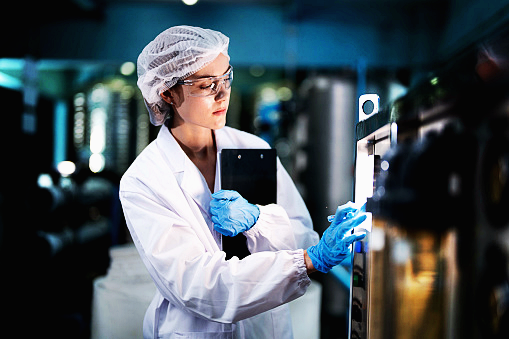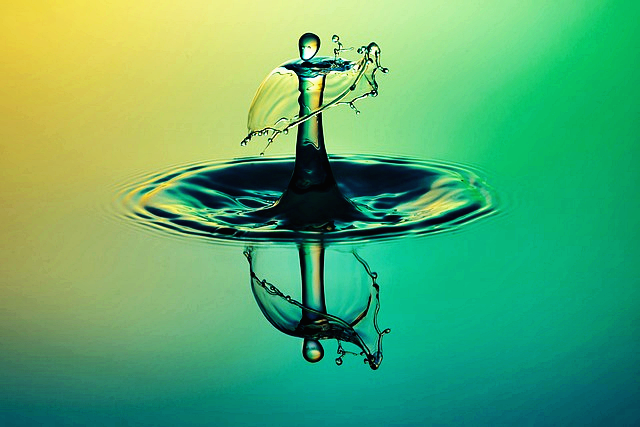Unveiling the Microbial World The Hidden Life Forms in Our Environment
The microbial world is an intricate and complex realm that largely exists beyond the naked eye. From the depths of the oceans to the rich soil beneath our feet, a plethora of microscopic life forms coexist with us, often in ways we have yet to fully understand. These hidden life forms play crucial roles in the environment, contributing to processes such as nutrient cycling, decomposition, and even influencing climate regulation. By delving deeper into this fascinating subject, one may uncover the astounding diversity of microbes and their multifaceted contributions to our planet.

The Incredible Diversity of Microbes
Microorganisms encompass an astonishing variety of life forms, including bacteria, archaea, fungi, viruses, and protozoa. They can be found in nearly every habitat on Earth, demonstrating remarkable adaptability to extreme environments, such as the acidic hot springs in Yellowstone National Park or the depths of the Mariana Trench. Moreover, microorganisms are critical to the survival of ecosystems, forming the foundation of food webs and supporting higher life forms.
Bacteria, one of the most well-known types of microbes, are single-celled organisms that exist in countless shapes and sizes. They are categorized into various groups based on their shape: cocci (spherical), bacilli (rod-shaped), and spirilla (spiral). While some bacteria can cause diseases, the majority are harmless or even beneficial. For instance, gut bacteria help in digesting food and synthesizing essential vitamins for the host.
In the realm of archaea, these microorganisms share some similarities with bacteria but have distinct genetic and biochemical characteristics. Archaea are renowned for their ability to thrive in extreme conditions, such as high salinity, temperature, or acidity. Their unique adaptations are being studied for potential applications in biotechnology and environmental remediation.
Fungi, though traditionally considered plants, are classified as a separate kingdom. They play a crucial role in decomposition and nutrient cycling, breaking down organic matter and returning nutrients to the soil. Mycorrhizal fungi, for example, form symbiotic relationships with plants, enhancing nutrient uptake and providing essential minerals for plant growth. Such interactions highlight the interdependence of life forms within ecosystems.
The Role of Microbes in Ecosystems
Microbes are not just passive inhabitants of our environment; they actively contribute to various ecological processes that are vital for life. One of the most significant roles of microbes is decomposition, which involves breaking down dead organic matter and recycling nutrients back into the ecosystem. This process is essential for maintaining soil health and fertility, ensuring that plants have access to the nutrients they need.
In addition to their role in decomposition, microbes also partake in nitrogen fixation, a process where atmospheric nitrogen is converted into a form that plants can use. Certain bacteria, such as Rhizobium, live in root nodules of legumes and facilitate this conversion, providing a significant source of nitrogen to plants. This natural process reduces the need for synthetic fertilizers, thereby promoting sustainable agricultural practices.
Furthermore, microbes engage in biogeochemical cycles, including carbon, sulfur, and phosphorus cycles, which are essential for regulating the Earth's climate and maintaining the balance of ecosystems. For example, bacteria in oceans play a crucial role in carbon cycling by facilitating the breakdown of organic materials, which in turn helps regulate atmospheric carbon dioxide levels.
Microbes and Human Health
Microbial life also significantly impacts human health, both positively and negatively. The human microbiome, a collection of trillions of microbes residing in and on our bodies, plays an essential role in various bodily functions. These microorganisms assist in digestion, produce vitamins, and protect against pathogenic bacteria. A healthy microbiome is crucial for maintaining overall well-being, and imbalances in this microbial community can lead to health issues, such as obesity, diabetes, and inflammatory bowel diseases.
The relationship between humans and microbes extends beyond the gut. Skin microbiota, for instance, help defend against harmful invaders and maintain skin health. Moreover, research has shown that certain probiotics, or beneficial bacteria, can have therapeutic effects, such as improving gut health and enhancing immune responses.
However, it is essential to recognize that not all microbes are beneficial. Pathogenic microorganisms can cause various diseases, including respiratory infections, gastrointestinal disorders, and skin infections. Understanding the balance between beneficial and harmful microbes is crucial for developing effective treatments and preventive measures.
The Unseen Impact of Microbes on Climate
While the implications of microbial life on health are well-discussed, their influence on climate change is often overlooked. Microbes play a pivotal role in carbon cycling and greenhouse gas emissions. For instance, certain bacteria and archaea in soils and oceans are involved in breaking down organic matter, releasing carbon dioxide and methane, potent greenhouse gases, into the atmosphere.
As global temperatures rise, microbial activity is expected to increase, leading to enhanced decomposition rates and potentially greater greenhouse gas emissions. Conversely, some microbes can mitigate climate change effects by sequestering carbon in the form of organic matter or through other biochemical processes. Understanding these dynamics is crucial for developing effective strategies to combat climate change.

Biotechnological Applications of Microbes
The diverse capabilities of microbes have immense potential for biotechnological applications. From agriculture to environmental management, their contributions can lead to innovative solutions for pressing global challenges. In agriculture, microbial fertilizers and biopesticides can enhance crop productivity while minimizing environmental impacts. Harnessing the powers of beneficial bacteria and fungi can reduce reliance on chemical fertilizers and pesticides.
In environmental management, microbes are employed in bioremediation, a process wherein microorganisms degrade or transform pollutants in contaminated environments. For example, certain bacteria can break down petroleum hydrocarbons, making them invaluable in cleaning up oil spills. Using microorganisms to mitigate pollution not only reduces harmful substances but also promotes ecosystem recovery.
Moreover, the role of microbes in waste management cannot be understated. Anaerobic digestion, facilitated by bacteria, is an effective method to treat organic waste, producing biogas as a renewable energy source while reducing landfill burdens. Additionally, the production of biofuels through microbial fermentation processes offers an alternative to fossil fuels, leading to more sustainable energy solutions.
The Importance of Microbial Research
Research on microbes continues to unveil their extraordinary capabilities and contributions to our world. Various scientific endeavors focus on better understanding microbial diversity and their interactions within ecosystems. As new sequencing technologies emerge, scientists are discovering previously unknown species, highlighting the vastness and complexity of the microbial world.
Such research is vital not only for advancing scientific knowledge but also for addressing global challenges, including food security, health crises, and climate change. As we continue to elucidate the roles of microorganisms in these areas, we can develop strategies for sustainable solutions that leverage the natural capabilities of microbes.
Collaboration between microbiologists, ecologists, and policymakers is crucial to ensure that microbial research translates into actionable and sustainable practices. Initiatives for public education and awareness about the significance of microbes can foster a greater appreciation for these hidden life forms and their roles in maintaining a balanced ecosystem.
Microbial Threats and Challenges
Despite the many beneficial aspects of microbes, there are significant challenges associated with pathogenic microorganisms. The rise of antibiotic resistance poses a looming threat to public health, as certain bacteria evolve and develop resistance to commonly used antibiotics. This phenomenon calls for immediate attention and action from researchers and healthcare professionals to develop new antibiotics and alternative treatments.
Moreover, the spread of infectious diseases, influenced by global travel and changing environmental conditions, exemplifies the need for constant vigilance in understanding microbial behavior. Disease surveillance, rapid response strategies, and the development of effective vaccines are paramount in mitigating the impact of potential outbreaks.

The Future: Embracing the Microbial World
As we advance into a future increasingly shaped by environmental changes and technological innovations, recognizing the integral role of microbes is vital. Their contributions to ecosystems, agriculture, health, and biotechnology underscore the necessity of maintaining microbial diversity and ecosystem balance. Sustainable practices that promote the health of microbial communities can lead to more resilient ecosystems and improved human health outcomes.
Furthermore, fostering interdisciplinary cooperation between microbiologists, ecologists, public health professionals, and policymakers is essential for addressing the complex challenges posed by microbes, whether beneficial or harmful. As new discoveries continue to emerge, our understanding of the microbial world will evolve, ultimately shaping a more sustainable future.
The journey of uncovering the hidden life forms in our environment is one filled with intrigue and wonder, revealing the intricate connections between all living beings. By acknowledging the profound impact of microbes, we can strive to coexist harmoniously with these unseen organisms, fostering a deeper appreciation for the delicate balance of life on Earth.
댓글